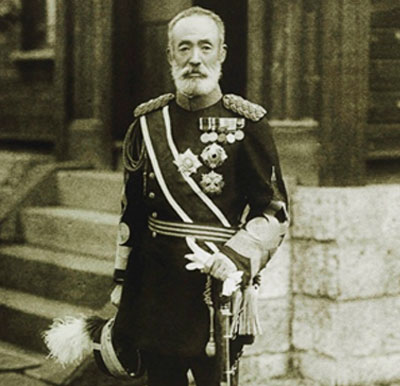Seeing Equality Rather than Emphasizing the Differences
World Teacher's Message No.293
We are taught that “Mercy” is the key word to open up the next creative society. I think it is hard to practice “forgiving love”. How can we deepen the mind of Mercy?
Extract from Master’s lecture of “How to become a Great Leader” given at Happy Science Kumamoto Shibu Shojya on December 18, 2010
At first, you need to study the truth so that you can divide and distinguish right from wrong. This is the beginning of wisdom. You need to gain wisdom. It’s natural that you will have a stern view point towards other people and become judgmental while you’re studying the truth and become more aware of what is right and what is wrong.
When you are fighting with someone, you argue your points and judge your opponent with your view point. However, when the gap between your state of mind and your opponent’s state of mind widens, the situation will be changed. When your state of mind becomes higher, it becomes like a fight between an adult and a child. You used to think that the other person is the bad guy and you are the good guy such as Superman vs. the evil, a superhero vs. a gang leader, etc. However, you start to notice the situation has changed.
As your religious training progresses and the state of your mind elevates, you will become aware of other people’s problems with which they are still struggling. Now you are in the position of pulling them up from the swamp and encouraging them by saying a few white lies. In that process, you are not merely confronting, but loving others by forgiving them. Forgiving love doesn’t mean that you need to forgive everyone no matter what they do, even bad things. It means that you need to embrace others in pain and understand why they are suffering by knowing a higher perspective, the mind of the universe, God and Buddha, and the system of this world to guide them in the right direction.
Knowing the Truth Leads to “Forgiving Love”
Therefore, to forgive doesn’t mean to welcome bad things endlessly.
For example, I was watching the news yesterday about a man who got on a school bus in the morning and started to assault students with a sword. He ended up assaulting more than ten junior and senior high school students. He says that he wanted to end his life. If he wanted to end his life, I want to say, “go ahead by yourself”. There’s no reason to hurt anyone else. If he wanted to end his life, commit Harakiri. There are a number of traditional manners, and I would tell him several ways about how to do so. I want to say to him, “go do it alone”. Why did he have to hurt innocent people on the bus? There are certainly a lot of suffering in life and you may feel other people are evil. However, seen from the real meaning of the truth, there are many reasons for aberrant behavior, and often it is simply that people lack intelligence. People often do things which they wouldn’t normally do if they have true intelligence and the power to know the Truth.
Therefore, the real meaning of “forgiving love” is to know the deeper truth and it will lead you to “forgiving love”. Also, to know deeper and bigger righteousness will bear the fruit of “forgiving love”.
After the Battle, You and Your Enemy Should Act with Humanity
As I wrote in my book “The Strong Mind”, Takamori Saigo, one of the most famous and influential samurai who led the Meiji Restoration, went to invade the Shonai region (now Yamagata prefecture) and did not take away his enemies’ swords after the battle.
The Shonai warriors were on the side of the Tokugawa shogunate and they were considered a righteous group at the time, before the Meiji Restoration happened, because they were the government army.
Saigo said “Shonai warriors are not criminals. They were fighting for the Tokugawa shogunate which was in power at the time. We won and turned over the administration by good luck but we should not hurt the honor of the Samurai.” After the defeat, he allowed them to carry their swords even though he knew they might fight back against him. Saigo even went to see the Shonai warriors without carrying his sword while the opponents still carried theirs. When outside people saw this situation, it was hard for them to tell who actually won the battle.
There was a similar episode about General Nogi of Japan after the Russo-Japanese War. After Japan conquered Lushun, General Nogi allowed General Stoessel of Russia to carry his sword at the meeting. When foreign reporters heard about this incident, they introduced this story to the world, praising General Nogi’s manner of conduct as the dignified Japanese way or the magnitude of Japanese Bushido spirit. The world was taken by surprise and showed admiration.
“Forgiving love” doesn’t mean that the winner can humiliate and punish the loser but rather the winner recognizes the loser’s strength and how well they fought. By putting yourself into the opponent’s shoes, the citizens, the general or the commander, you can imagine how hard they fought the battle. It’s the idea of becoming person to person and sharing our humanity as the same “Earthlings.” I think this way of thinking is very important. Although conflicts never end in this world, and punishments seem to last forever, I suggest that we should have a bigger perspective.

Army General Nogi, who fought in the Sino-Japanese War and the Russo-Japanese War
Even Conflicts Are Not Allowed Under the Control of Free Speech
Why conflicts happen in the first place is because everyone has different opinions and debates. If so, is it better to not debate at all? It’s not always the case. Is China a good country because all speeches are controlled by the government? Not really. Of course, some people may have totally opposite opinions yet still it is wonderful that we have the right to free speech and are allowed to have debates. We need to have such forgiveness which lead us to embrace and tolerate different opinions. When you elevate your level of enlightenment, your degree of tolerance will broaden.
Deep and Broad Education Also Develop a Mind of Forgiveness
When John F. Kennedy was the president of the United States, the former Soviet Union army built nuclear missile sites in Cuba (the Cuban Missile Crisis). Cuba is a stone’s throw away from America. North Korea is trying to do the same against Japan (at the time of this lecture). It would have been unavoidable for America to counterattack if the Soviets had launched missiles from Cuba.
While the Kennedy administration was experiencing significant tension, and the whole nation was watching nervously, then Japanese Prime Minister, Eisaku Sato, visited the President. President Kennedy was too busy to have a conversation with Japanese Prime Minister for more than 15 minutes. He wanted to end the meeting quickly and get back to his work, but then the Prime Minister cited a famous quote of Dr. Albert Schweitzer, a French-German doctor referred to as the “jungle saint“, who devoted his life to curing illness in Africa.
Prime Minister Sato told President Kennedy that Dr. Schweitzer famously said that the winner of the war should treat the loser of the war courteously and respectfully. President Kennedy, who might have taken Japanese people lightly, was impressed with how cultured the Japanese Prime Minister was and extended the meeting from 15 minutes to 3 hours.
It is easy for the winner of a war to treat the loser like monkeys. However, according to Dr. Schweitzer, the winner should tend to the loser soberly, as they would attend their funeral. I think he is right.
Good education and a deep understanding of many things will also develop a mind of forgiveness. If you are the winner and don’t have a deep understanding of things, you become discriminatory and say, “You losers have no right to say anything,” or “I don’t have time for you. You lost”. Therefore, it is important to have a deep understanding of many things. When there is a huge gap between two people’s knowledge, they can’t fight in the same ring.
It is hard to describe the state of forgiving love in a religious sense. If you think that good and evil are the same, like in the saying “good and evil are but two faces of the same coin”, you are wrong. If you place good and evil on a flat surface side by side, you may make mistakes. Rather, this requires a more 3-dimentional way of thinking.




















